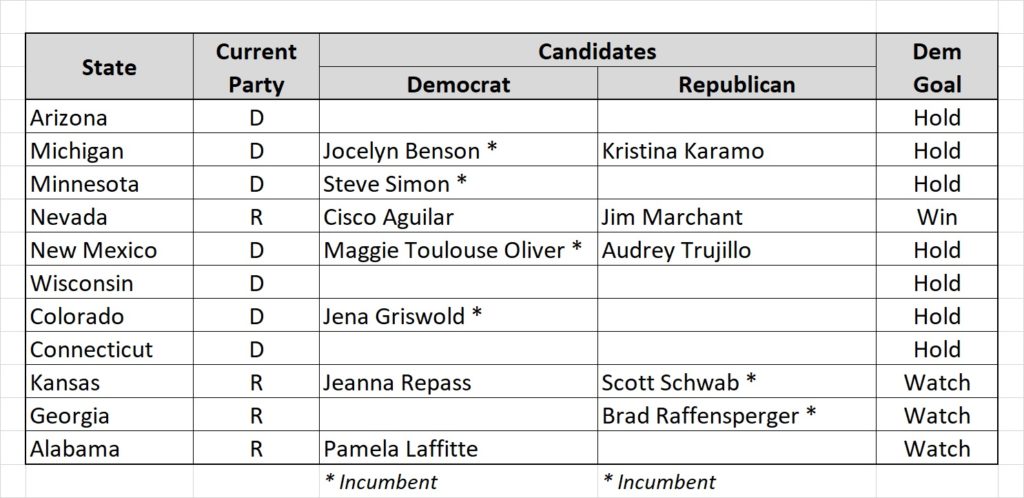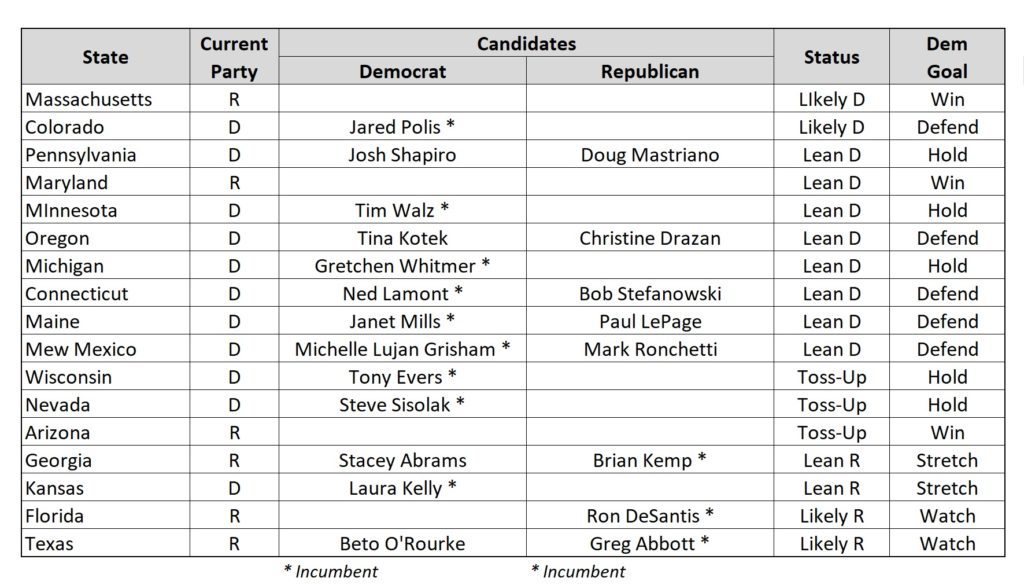I was recently asked my opinion on ranked choice voting (RCV). While I think it’s a great idea, I wasn’t sure it was a great blog topic. However, after some research and several conversations with friends, I’ve learned a few things:
- Many people have never heard of RCV.
- Some people have heard of RCV but dismiss it as too complicated.
- Some people have heard of RCV but dismiss it as unfair.
- Some people have heard of RCV but dismiss it as not good for them.
So, okay. A blog post it is. RCV isn’t complicated, it’s more fair than traditional elections, and the politicians who hate it aren’t the people we want in government.
From a voter’s perspective, RCV is about as simple as it gets: Instead of voting for just one candidate in a given race, you rank the candidates in your order of preference, from first to last. That’s it.
If there are two candidates on the ballot, RCV obviously produces exactly the same result as a traditional election. The benefits come when there are more than two candidates. In current U.S. elections, this mostly occurs in party primaries, in general elections that include third-party candidates, and in non-party contests.
While counting votes in an RCV election can seem a bit complex, it’s really not. It’s just harder to explain than it is to do. I’ve seen some dreadfully convoluted RCV explanations online, so I’ll give it a shot myself:
- First-choice votes are counted for each candidate.
- If a candidate has over 50% of the first-choice votes, that candidate wins.
- If there’s not a winner, the candidate with the lowest first-choice vote count is eliminated.
- On each ballot won by that eliminated candidate, the second choice becomes the first choice, the third becomes the second, etc.
- Repeat from (1).
Essentially, you just keep eliminating candidates with the least support until you’re left with a single candidate that has the strongest support amongst all voters. Note that RCV doesn’t require a voter to rank all of the candidates; if someone wants to cast only their first-choice vote, that’s perfectly fine.
In short, RCV is an elegant way to conduct democratic elections. Costly and time-consuming runoff elections become unnecessary. The impact of “spoiler” candidates is greatly reduced. People can choose to support a third-party candidate without being too concerned about throwing the election to someone they consider the worst choice on the ballot. Negative campaigning becomes self-defeating as candidates strive to be the second choice of their opponents’ voters. Extremists on both sides become marginalized.
RCV has been proven to work and has been well-received by voters who have used it. It has been used in jurisdictions within Maine, Alaska, California, Colorado, Minnesota, New Mexico, Utah, and New York. Over 11 million voters in 55 cities, counties, and states are planning to use RCV in their next elections. This diversity of locales highlights the fact that RCV doesn’t favor or disfavor Democrats or Republicans; supporters and detractors are present in both of the major parties.
Despite voter popularity, many politicians have displayed outright hostility toward RCV. Republican Governors in Florida and Tennessee, for example, have signed bills banned the use of RCV within their states. Top Democratic officials in Nevada are currently trying to block RCV within their state.
Why? While numerous reasons for resistance are often sited, there are really only two that aren’t blatant lies:
- There’s a concern that the perceived complexity would lead to more votes being rejected. For example, someone could rank two candidates as their first choice or rank the same candidate multiple times. While this could well be true, RCV is no more problematic than someone trying to simultaneously cast multiple votes in a traditional election. A well-designed RCV ballot (and certainly well-designed in-person voting software) could greatly mitigate RCV errors. Beyond that, well, I think I’m okay with ignoring the votes of anyone who doesn’t know how to rank things.
- There’s a concern that the status quo would be disrupted. And, yes, it definitely would. Many politicians, in both parties, have a distinct preference for pluralities over majorities. RCV favors the latter and therein lies the reason that RCV isn’t the way that we conduct all elections.
It is theoretically possible in an RCV election for a candidate to get 49% of the first-choice votes on the first count but still lose the election. What that says is that 51% of all voters wanted ANYONE ELSE and the other candidate that eventually got to 51% was preferred by more people than the one who initially had a plurality but failed to garner any additional support.
This, however, isn’t the outcome that many party activists want. They know that their politically active base, often led by extremists, may never expand to a majority. They can, however, almost always win a plurality of votes. And that’s where they want elections to stop. They love spoiler candidates who split the votes of their opposition – because that opposition might constitute a majority.
Gee, that seems like a callous disregard for democracy, doesn’t it? Well, of course it is. These are professional politicians who are trying their best to hold onto power. Protecting the control of their far-right and far-left constituents protects their jobs. The cycle has to stop.
RCV is by no means a panacea. However, if democracy is to survive, RCV could well be one of the lifelines. Here are a couple of non-profits if you’re looking for more information or if you want to help:







